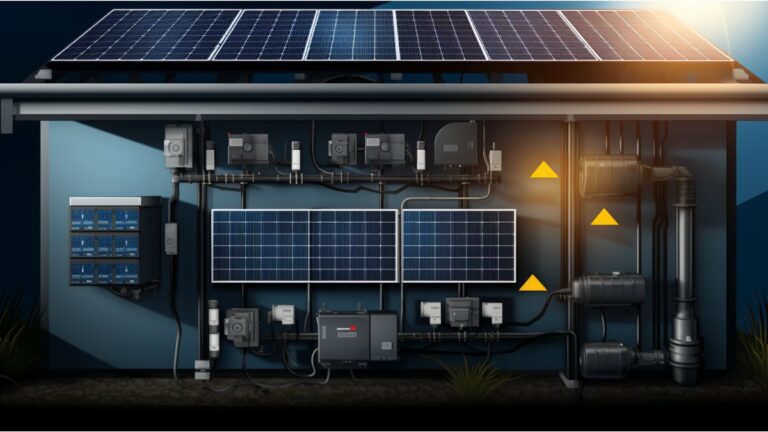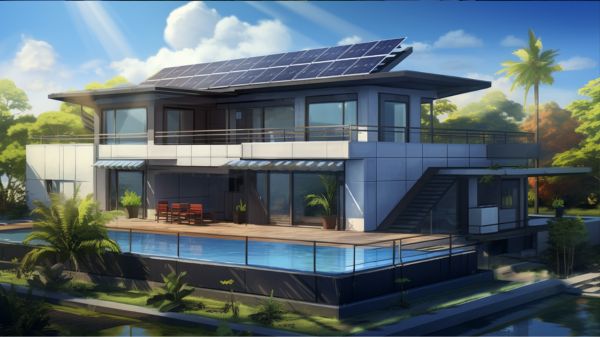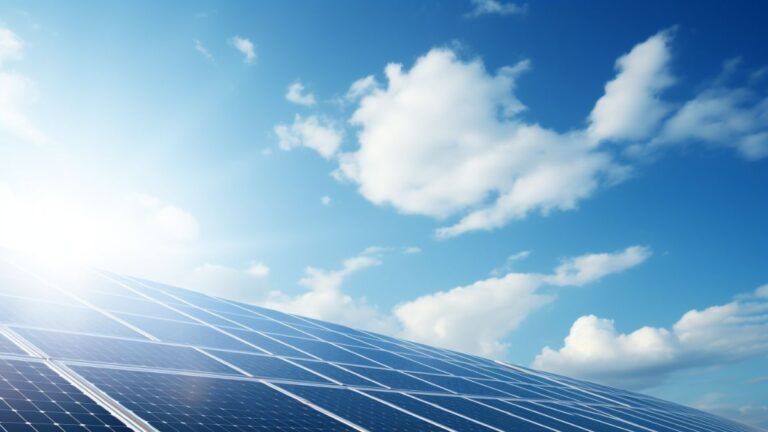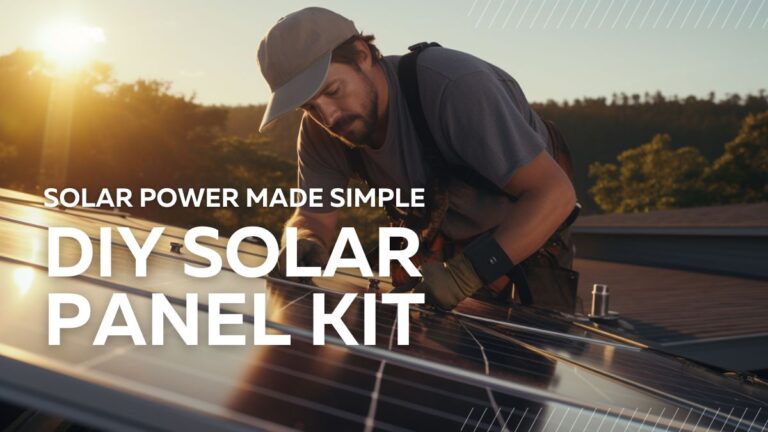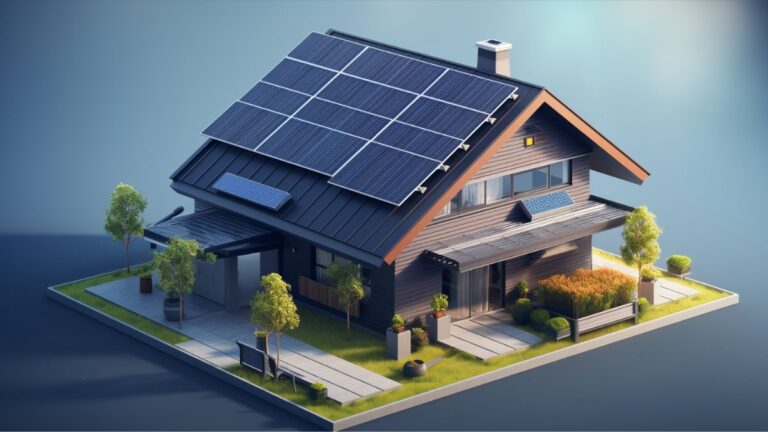Why Is Choosing the Right Solar Power System Crucial?
Are you tired of being in the dark when it comes to solar power? Well, buckle up because we’re about to shed some light on why choosing the right solar power system is crucial.
Think of it like finding the perfect puzzle piece that completes your picture-perfect future. In this article, we’ll explore the factors to consider, the types of solar power systems, and how to determine your energy needs.
So get ready to embark on a sunny journey towards energy independence!
Key Takeaways
- The installation process and the reputation of the installer are important factors to consider for the efficiency and effectiveness of a solar power system.
- The type of solar power system chosen, such as grid-tied, off-grid, or hybrid, depends on factors like location, budget, and energy requirements.
- Assessing energy needs and calculating solar energy potential based on power ratings and usage hours is crucial to ensure the solar power system meets energy requirements effectively.
- Evaluating efficiency and performance of solar panels, including efficiency ratings, performance warranty, and degradation rate, is essential in choosing the right solar power system.
Factors to Consider
When considering the right solar power system for your needs, there are several factors that you should take into account.
The installation process plays a crucial role in determining the overall efficiency and effectiveness of the system. It’s essential to choose a reputable and experienced installer who can ensure a smooth and hassle-free installation. A professional installer will assess your property to determine the optimal placement of the solar panels, maximizing their exposure to sunlight and therefore their energy output. Additionally, they’ll handle all the necessary permits and paperwork, ensuring compliance with local regulations.
Another factor to consider is the environmental impact of the system. Solar power is a clean and renewable energy source, which significantly reduces greenhouse gas emissions and air pollution compared to traditional fossil fuels. By choosing to install a solar power system, you’re actively contributing to a greener and more sustainable future.
Types of Solar Power Systems
To continue the discussion from the previous subtopic, let’s explore the various types of solar power systems available for you to choose from. When it comes to solar panel installation, there are primarily three types of systems: grid-tied, off-grid, and hybrid.
A grid-tied solar power system is connected to the electrical grid, allowing you to sell excess electricity back to the grid and receive credits. This system is ideal if you live in an area with a reliable grid and want to reduce your electricity bills.
On the other hand, an off-grid solar power system is independent of the grid and relies solely on solar energy for electricity. It requires solar energy storage, typically in the form of batteries, to power your home when the sun isn’t shining. This system is suitable for remote areas or locations with frequent power outages.
Lastly, a hybrid solar power system combines the benefits of both grid-tied and off-grid systems. It allows you to store excess solar energy in batteries while still being connected to the grid as a backup power source.
Choosing the right solar power system depends on your specific needs and circumstances. Consider factors such as location, budget, and energy requirements to make an informed decision.
Determining Your Energy Needs
To accurately determine your energy needs, assess your daily electricity consumption and consider the specific appliances and devices you rely on. This step is crucial before proceeding with solar panel installation.
By understanding your energy consumption patterns, you can determine the appropriate size and capacity of the solar power system you need. Start by examining your electricity bills to identify your average daily usage. Take note of any peak periods or times when you consume more energy.
Next, make a list of all the appliances and devices you use on a regular basis. Consider their power ratings and the number of hours you typically use them. This information will help you calculate your solar energy potential and ensure that your solar power system meets your energy needs effectively.
Evaluating Efficiency and Performance
Now that you have accurately determined your energy needs, it’s important to evaluate the efficiency and performance of potential solar power systems to ensure they meet your requirements effectively.
When evaluating cost effectiveness, it’s crucial to compare solar panel brands. Look for panels that are known for their high efficiency ratings, as this indicates how much energy they can convert from sunlight.
Additionally, consider the performance warranty offered by the manufacturer. A longer warranty period suggests that the brand has confidence in their product’s performance and durability.
It’s also worth examining the degradation rate of the panels, which indicates how much their efficiency will decline over time.
Financial Considerations
Evaluate the financial considerations of potential solar power systems by comparing the upfront costs, potential energy savings, and available incentives. Conducting a cost analysis and calculating the return on investment (ROI) is crucial before making a decision. The table below provides an overview of the financial aspects to consider:
| Factors to Consider | Description |
|---|---|
| Upfront Costs | Evaluate the initial cost of purchasing and installing the solar power system. Consider factors such as the size of the system, equipment quality, and installation fees. |
| Potential Energy Savings | Estimate the amount of energy the solar power system can generate and how it will offset your electricity bill. Consider factors such as system efficiency, sunlight availability, and your energy consumption patterns. |
| Available Incentives | Research any government incentives, tax credits, or rebates that can help offset the cost of installing a solar power system. Consider factors such as federal, state, and local incentives. |
Conclusion
Choosing the right solar power system is like finding the perfect puzzle piece for your energy needs. It’s crucial to consider factors such as efficiency, performance, and financial implications.
By evaluating these aspects, you can ensure that your system fits seamlessly into your lifestyle, providing you with the energy independence and environmental benefits you desire.
So, don’t rush the decision; take your time to find the solar power system that completes the picture of your sustainable future.

